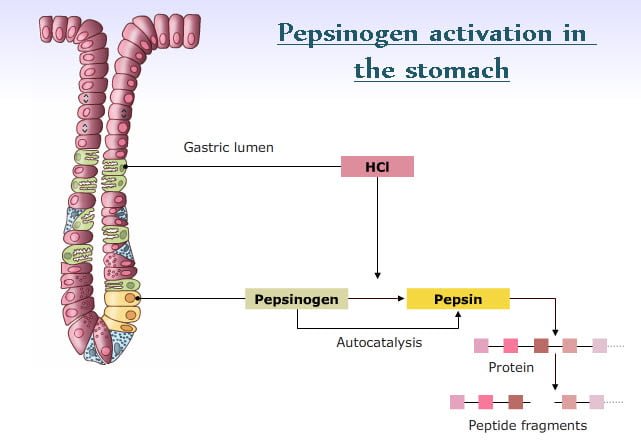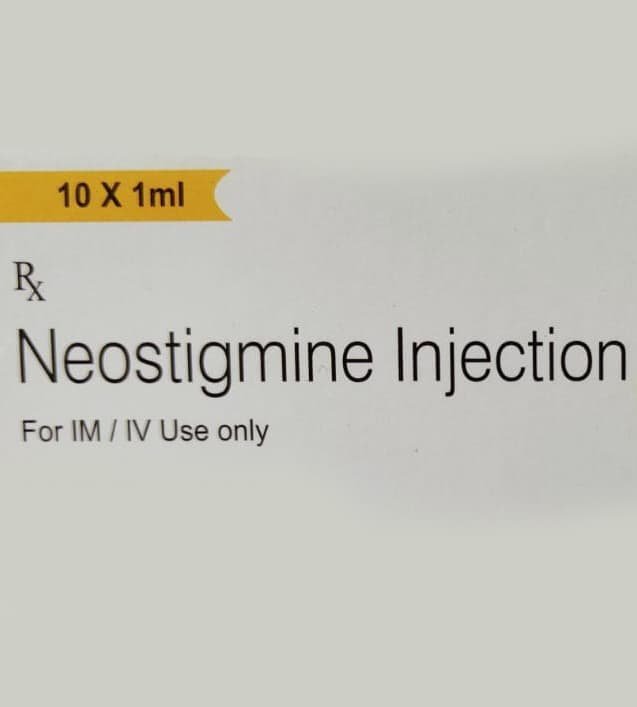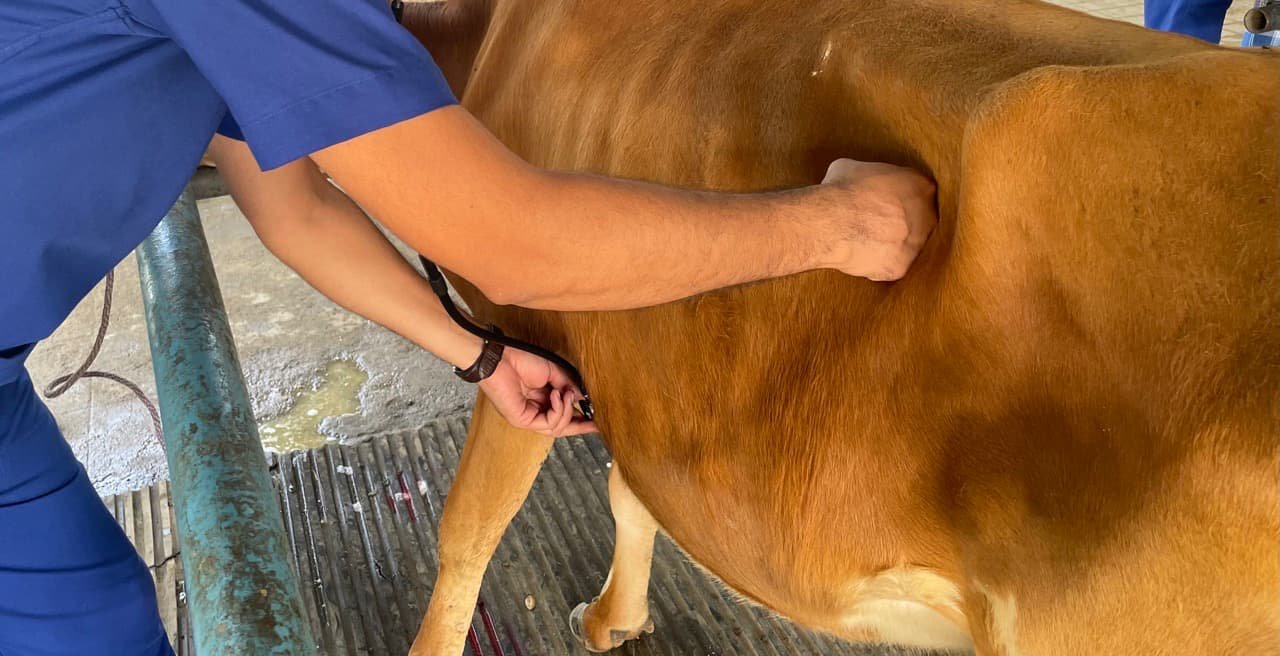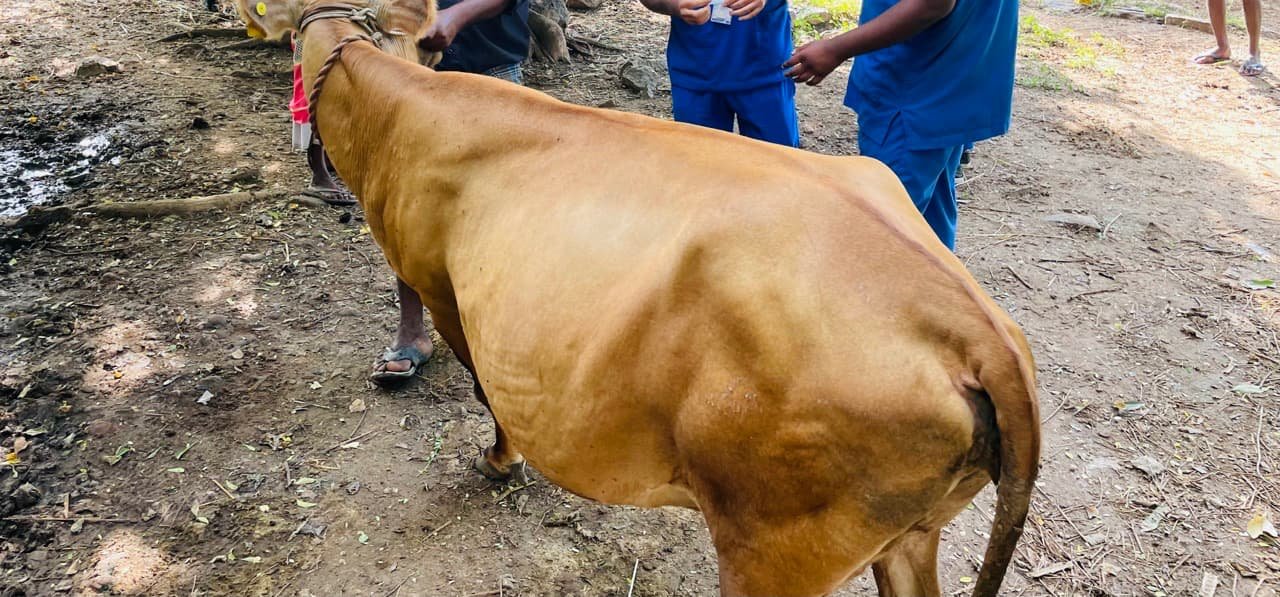Gastric juice and enzymes in animals
Gastric juice
Gastric juice is a colorless fluid, containing HCl, enzymes and mucus. Concentration of HCI in the stomach content varies with the nature of food, stage of digestion, amount of saliva to be neutralized etc.
Hydrochloric acid
- HCl is actively secreted by the parietal/oxyntic cells of the fundic glands involves expenditure of energy, which is derived from the oxidative metabolism.
- Diffusion of CO2 from the plasma into parietal cells
- Higher concentration of carbonic anhydrase in the parietal cells
- Chemical reaction of CO2 with cellular water in the presence of “carbonic anhydrase”
- Formation of carbonic acid ( H2CO3 ) in the parietal cells
- Dissociation of H2CO3 in to HCO3– + H+
- Diffusion of HCO3– ions into plasma with a exchange of Cl– ion from the plasma
- During active digestion, the concentration of HCO3 increases very high and increases the pH of blood, called as alkaline tide.
- Active exchange of H+ and K+ ions between parietal cell and luminal surface of the stomach by of H+ – K+ ATPase, enzyme present in the luminal surface of the stomach
- H+ ion is actively secreted into the luminal surface of the parietal cell with a exchange of K+ ions into the parietal cell
- Reaction of K+ ions with Cl– ion and formation of KCl in the parietal cell
- Release of KCl into the luminal surface
- Reaction of KCl with H+ ion and the formation of K+ ion and HCl

Functions of HCl
- Activates pepsinogen, the inactive form of enzyme into active pepsin, hydrolysing enzyme of protein
- Slight hydrolysis of sucrose
- Also function as antiseptic in the stomach.
Gastric enzymes
Pepsin
- Proteolytic enzyme, involved in hydrolysis of proteins into polypeptides
- Synthesized as “Pepsinogen” (inactive form of pepsin)
- Pepsinogen is activated by HCl
- Optimum pH of 1.5 – 3 is required for pepsin activity

Rennin(Chymosin, Rennet)
- Rennin is a milk coagulating enzyme, present in young animals(Calf, Lamb, piglet etc.,)
- Secreted as prorennin (inactive form of rennin)
- Prorennin is activated by HCl
- Rennin reacts with casein (Milk protein) in the presence of calcium ion forms calcium paracaseinate to delay the passage of milk through stomach for prolonged action of pepsin on casein
Gastric lipase
- Gastric lipase acts on emulsified fat
- Hydrolysis fat in to fatty acids and glycerol
- Require the optimum pH of 5.5 – 7.5
- Its concentration in carnivores is low
- Absent in birds and ruminants.






